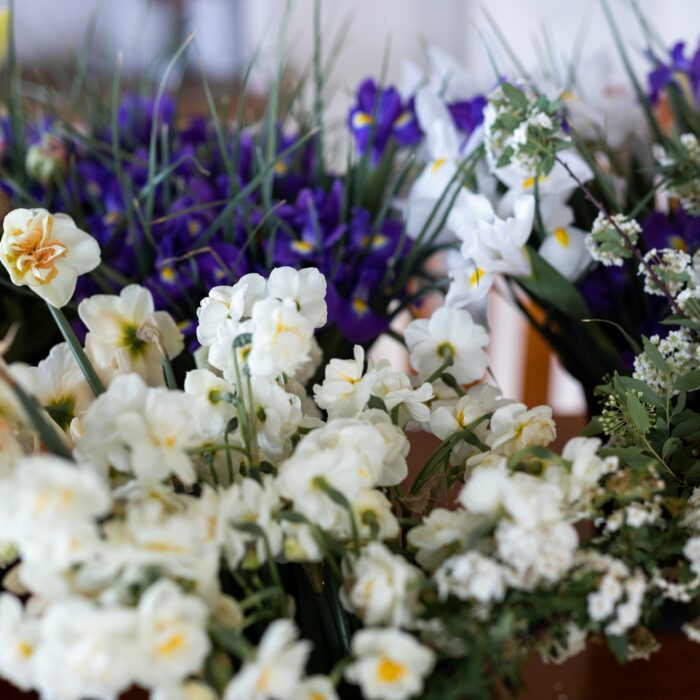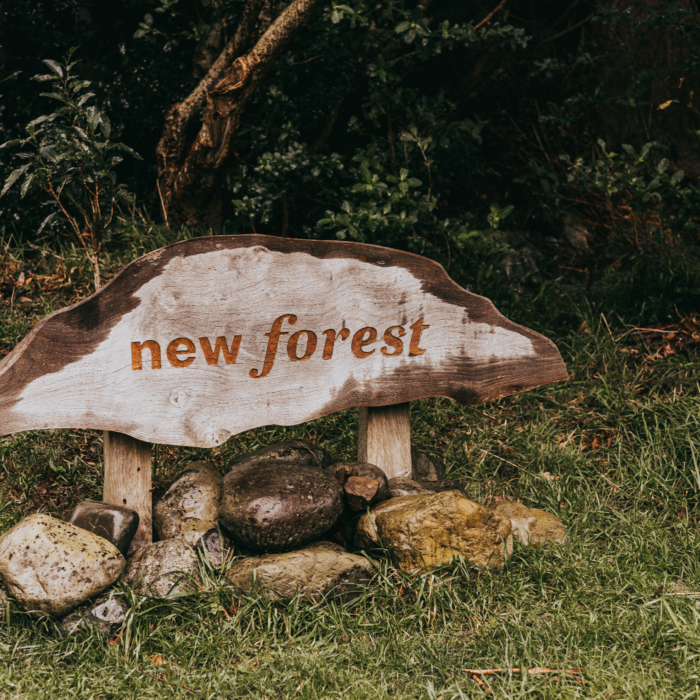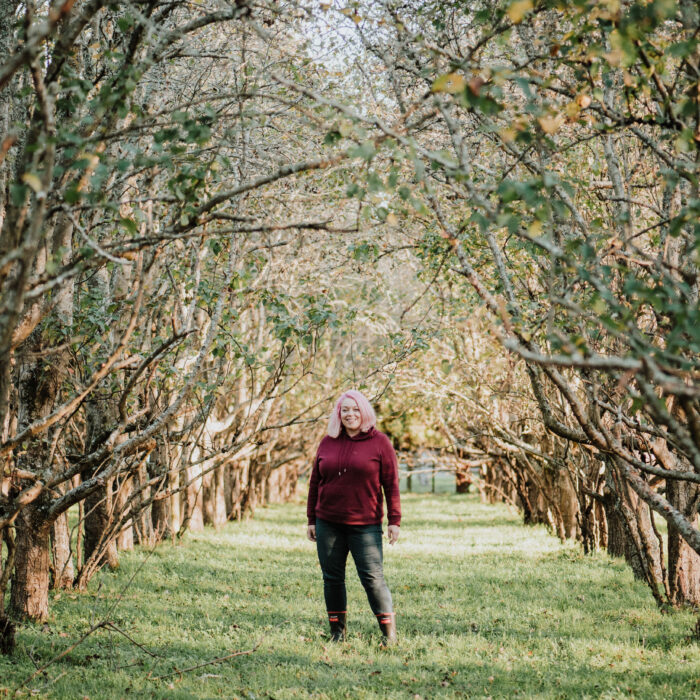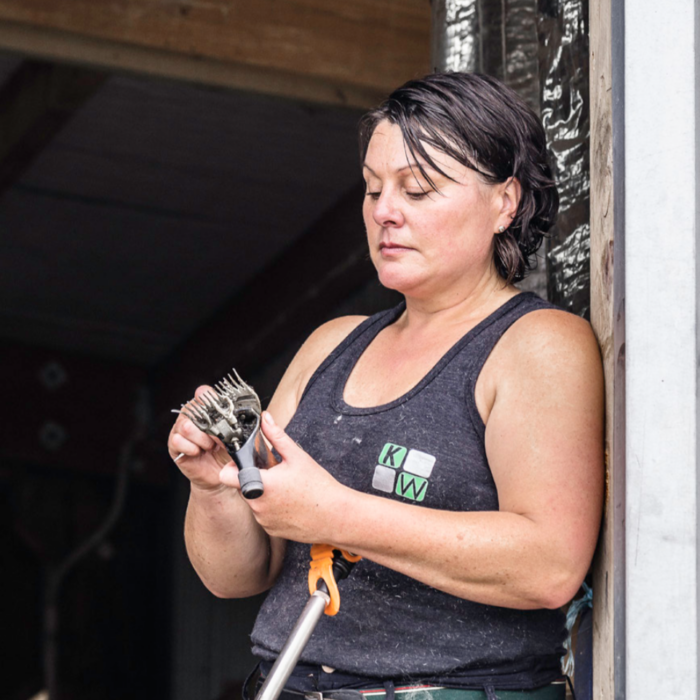07 September 2020
Wahine Toa
Going Against The Grain.
Writer: SHARN MAREE CASSADY (NGĀPUHI, TE WHĀNAHU-Ā-APANUI)
Photographer: HELEN LEA WALL
Pania Tepaiho Marsh shot to social media stardom two years ago, after starting Wahine Toa Hunting, a female hunting expedition and advisory venture, in August 2018. Passionate about boosting women’s confidence by showing them how to live off the land, the huntress’ message of self-sustainability has been spreading at speed, with appearances on television, radio, political platforms, and conference circuits, to name a few. This mother, wife and kaitiaki whenua (guardian and protector of the land) has made breaking barriers and staring adversity in the face, a full-time occupation.
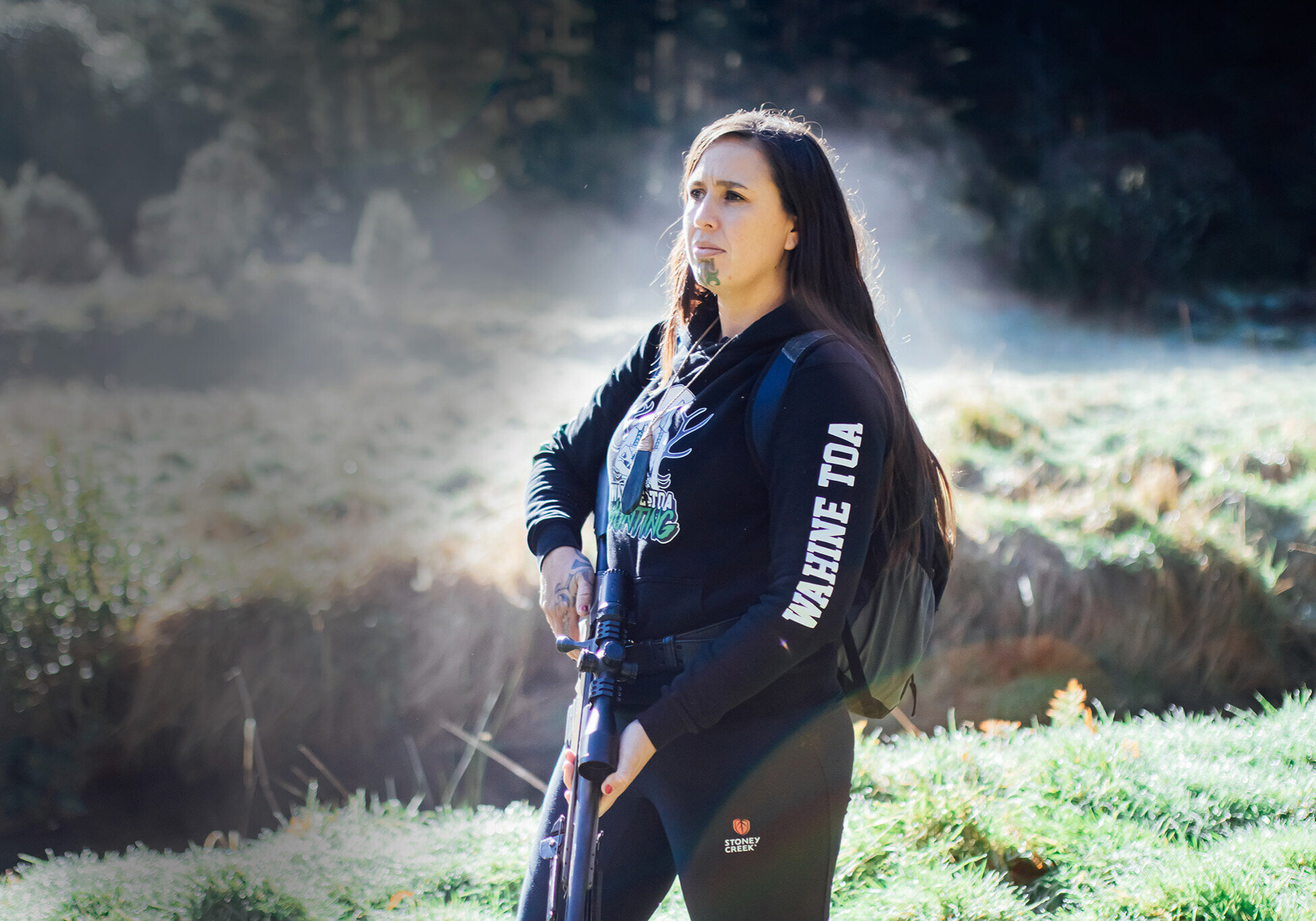
Pania Tepaiho Marsh (Ngāti Kahungungu ki Wairoa, Ngaitai) doesn’t do things conventionally. Wrapped in camouflage and carrying a high-calibre rifle on her shoulder, this wahine Māori has amassed a loyal social media following, with fifty-one thousand people tracking her hunting journey across Facebook and Instagram. Living in the small, rural town of Shannon, Pania is changing communities, one woman at a time. As her profile grows and her unorthodox lifestyle sparks conversations throughout the nation, Pania remains grounded and humble. “It’s not about me,” says Pania. “It’s about the collective.”
With a client waiting list pushing six years, Pania’s unique kaupapa (initiative) has caught the minds and hearts of thousands of women. Pania offers hunting trips, free of charge, to women wanting to learn a wāhine toa (brave women leaders and warriors) ethos. “My inbox is flooded with women from all around Aotearoa who want to learn to hunt and they are all facing the same barriers,” says Pania. “They don’t have the knowledge, and no one will teach them because they are women. There is this archaic misconception that providing from the land is a man’s job and this misconception needs to stop now. We are more than capable.”
Watching cost-of-living prices skyrocket and others struggle to feed their families, Pania made the decision to show others how to shoot and fill their freezers. Once a month, Pania takes a group of women bush for the weekend. They learn weapon safety and how to stalk and shoot; gathering the knowledge that will enable them to provide for their families, using their own two hands. The experience is often life changing and many go on to share these life-skills with their loved ones and communities.
"The first door might close, the second door might close but the third might just open a little, so keep pushing forward." says Pania.
"Our women - if you want to do something, if you believe in something and you have integrity within your intent, you can and will do it."
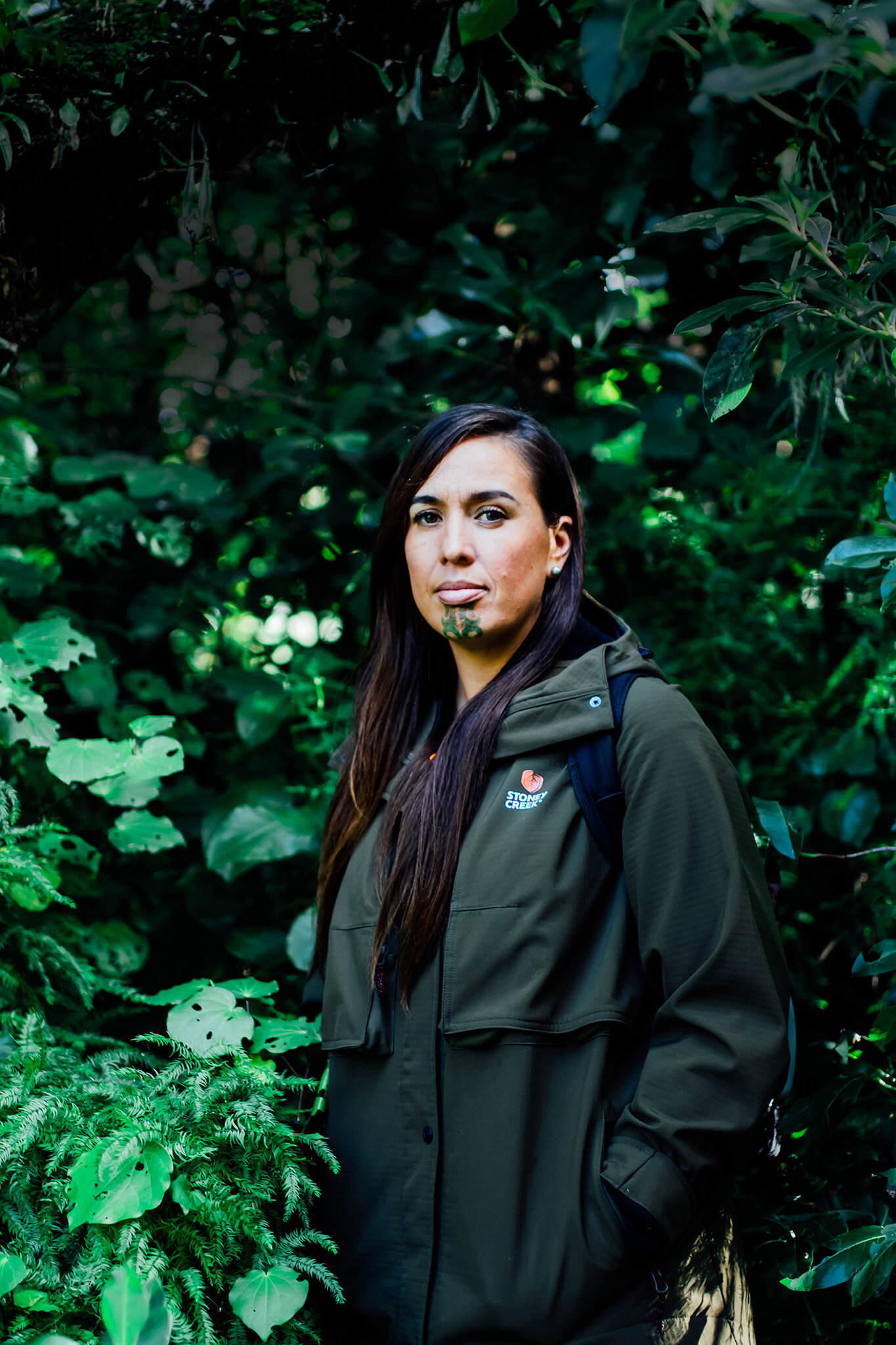
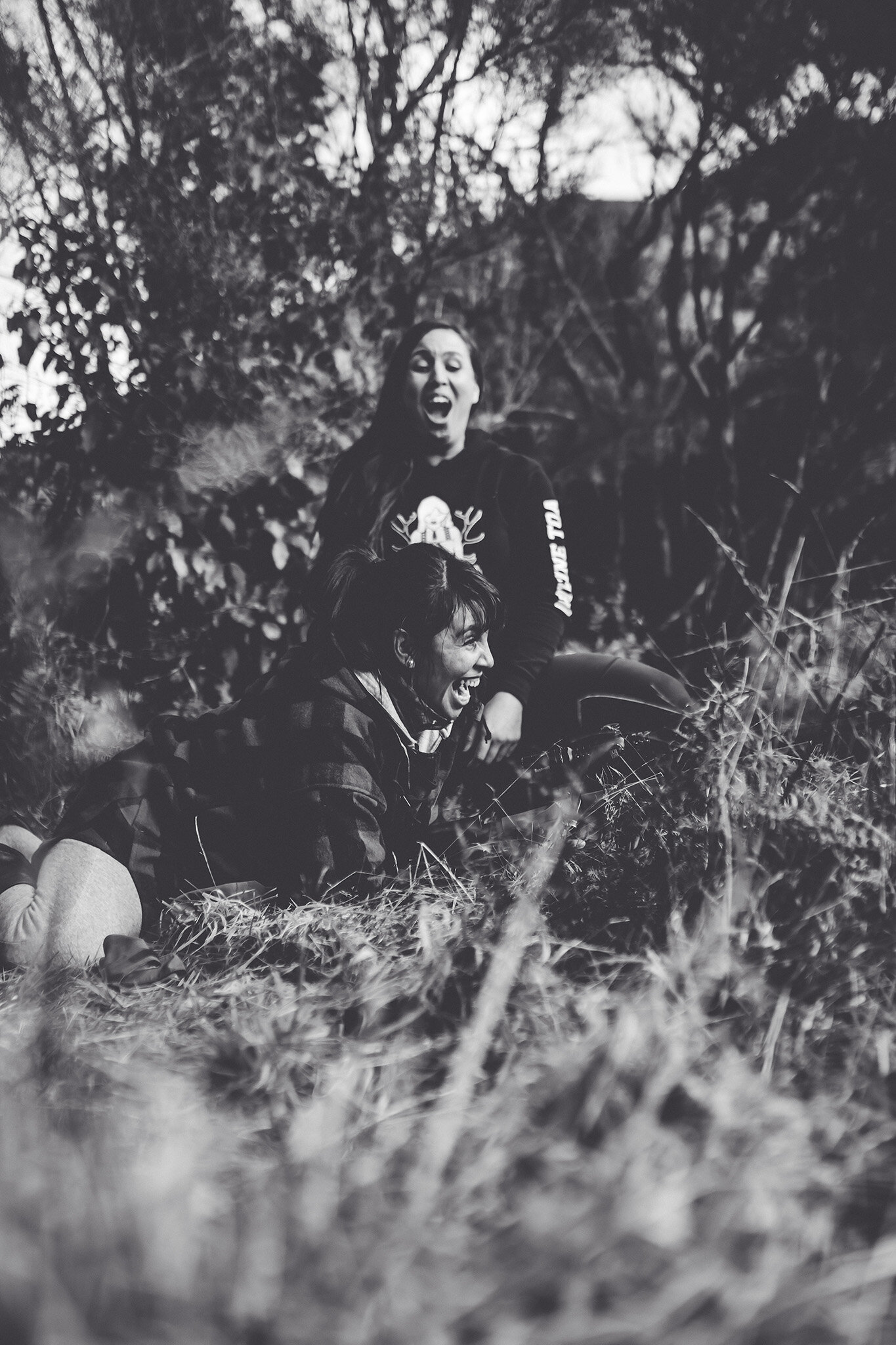
With no administrative team or marketing gurus, the entire Wahine Toa Hunting project is self-funded and self-managed by Pania, 37, and her husband, Haaka Hyram Marsh (Ngāti Kahungungu), 39, around their day jobs and whānau commitments. Pania is currently working as an iwi ranger and the couple have five beautiful children, aged from seven to eighteen. "I need to be true to myself. I need to be true to the kaupapa (purpose and set of values)," says Pania. "I exist as part of a greater framework. The framework of whakapapa (connection to an ancestral lineage and worldview). Whakapapa moves forwards and it stems backwards. I am just one small part of that. We are all one small part of that, and it is our role to educate our next generation. They might not always understand the lessons that we are teaching them; however, they have the essence of living self-sustained ingrained within their whakapapa. That is what we need to reconnect them with."
Growing up, Pania's greatest struggle was self-doubt. "I always felt like I was never quite good enough," says Pania. "I wasn't the most intelligent kid in class. I wasn't the prettiest. I had all these parameters I thought I needed to fit in order to be enough, and that mind-set shaped who I was back then." It was Haaka who first taught Pania to shoot; planting a seed that would help the huntress reclaim her self-belief and move towards establishing the self-empowering enterprise that is Wahine Toa Hunting. By helping women who often bear the same self-doubt that she once had, and through witnessing the transformations that this creates, Pania is continually inspired.

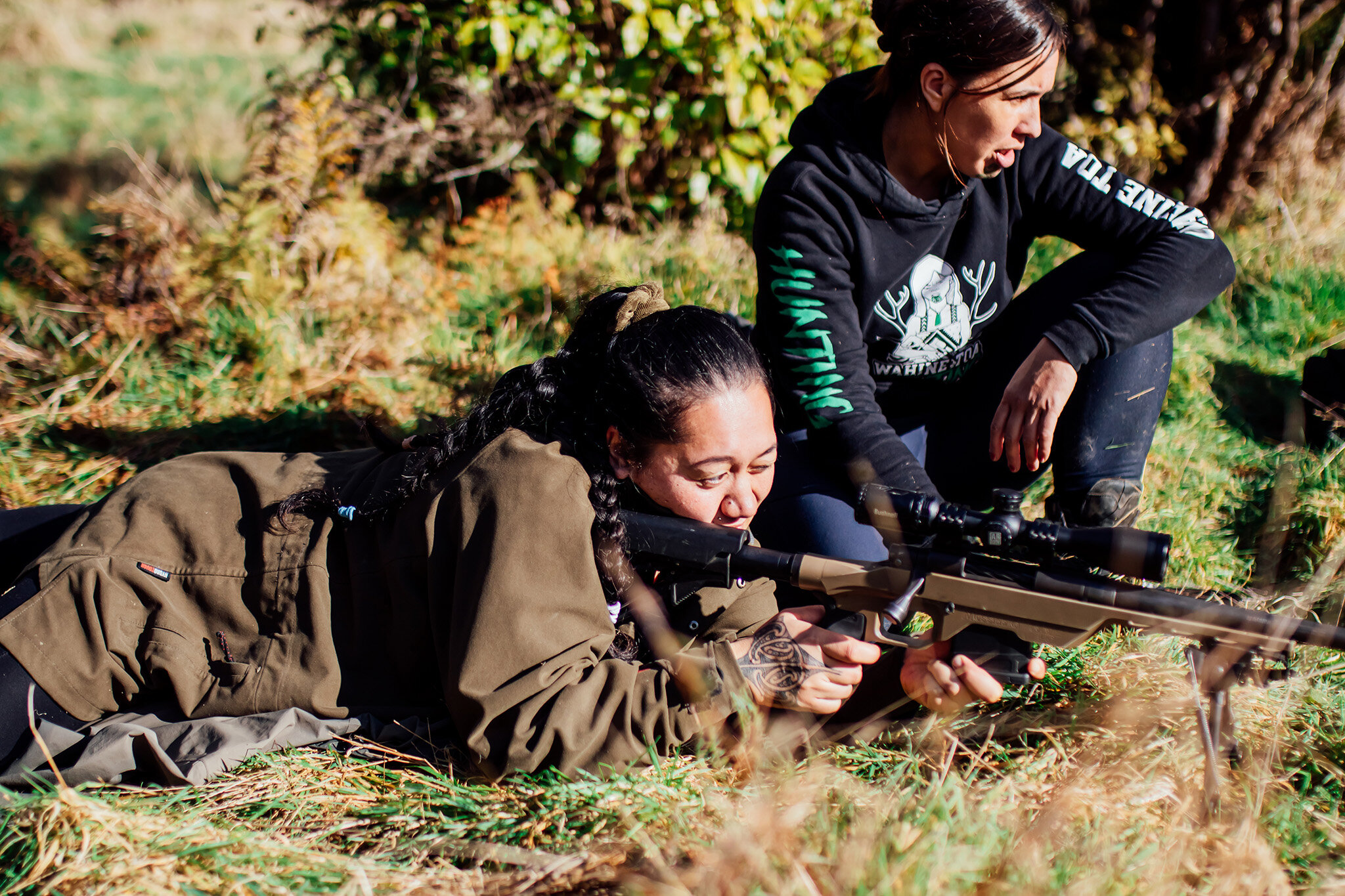
The rugged bush and raw experiences provide the Wahine Toa Hunting women space to connect on a deeper level to who they are. After long treks surrounded by bush and mountains, the wāhine encourage each other, clapping and embracing, as each take their turn to learn and reconnect with the ways of old. On one of their recent expeditions a woman is hunting, for the first time in her life, on her parent's land. Land that has sustained her family for many years. When she takes her first shot, her eyes light up with excitement. "This is my why," Pania says. Pania's knowledge and support has helped the woman to forge new paths of independence and hope.
"Out of all of the places I navigate, this is my happy place," says Pania. "I'm asked often to appear on different platforms, but not as me, as their version of me. I'm asked to speak a certain way or act a certain way, so that I fit within their box and I can't exist like that. None of us can. I find it inauthentic and I won't do it. I am enough as I am. You are enough as you are. Don't worry about how polished my words are, worry about the integrity I hold behind what I say. That's why the bush is so special. We are out here and all that we are is enough."
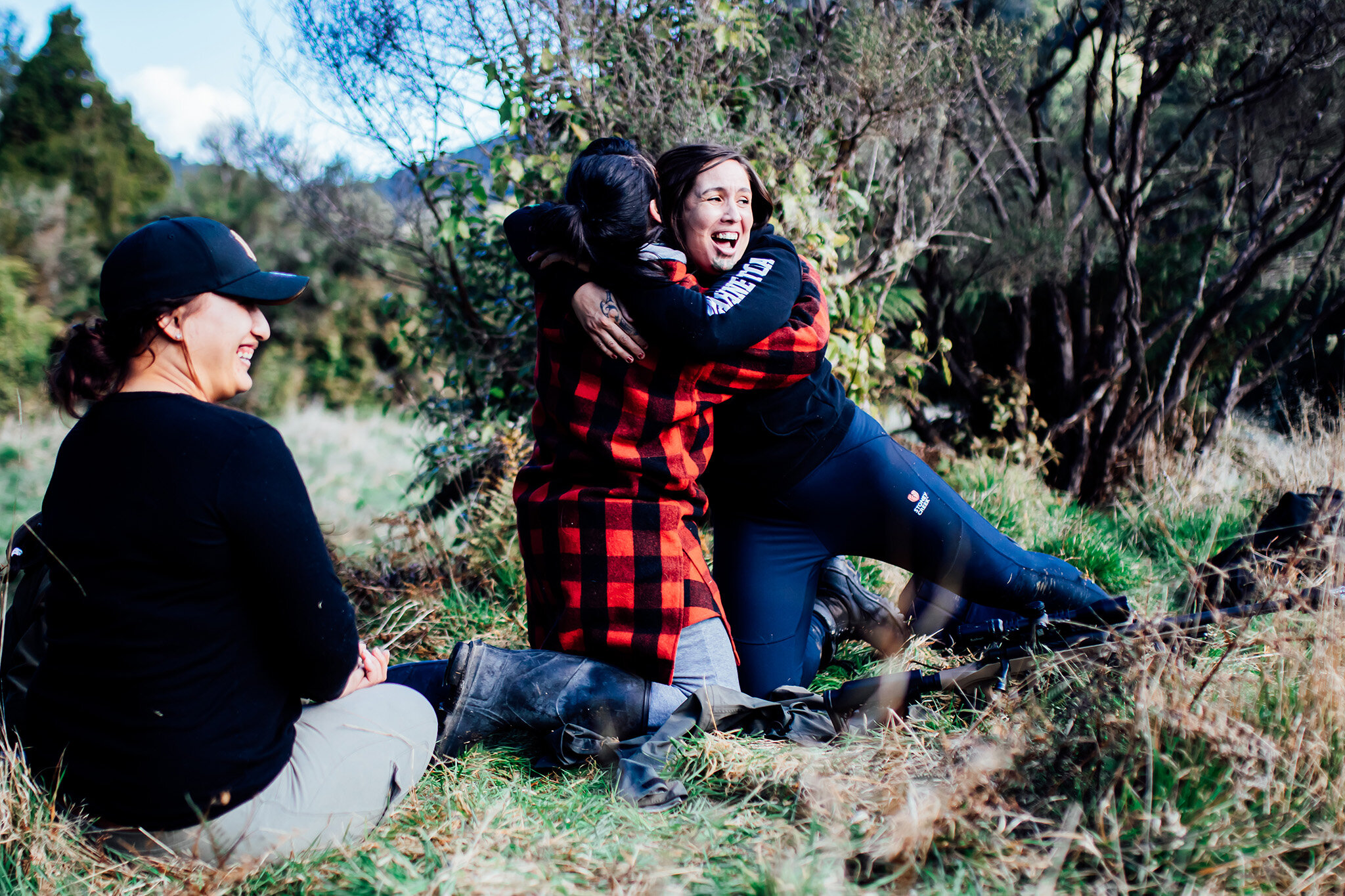
Swamped by her sudden success, Pania has learned lessons in over-commitment. After almost burning out because she didn't want to turn away an opportunity to help or educate others, the recent lockdown forced a much-needed step back to re-evaluate her priorities. Pania now carefully considers a project before committing to it, ensuring it can be balanced with her family and that it aligns with her greater calling.
"I think of the women who inspire me in my life; Mere Rekereke, Pania Newton, Dame Whina Cooper. Wāhine Māori who led fearlessly because they knew it was the right thing to do."
I have a vision for our next generation and I'm not just speaking about my children, I'm speaking about my children's children. The state of living in Aotearoa is becoming challenging for many and it is time to start having discussions about how we can move forward as a collective, side-by-side."
If you enjoyed this story, please share with someone else.
This story appeared in the Kōanga Spring 2020 Edition of Shepherdess.
Get your hands on a copy.
